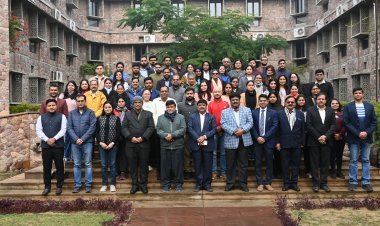New Delhi : Fateh Education, a leading study abroad consultancy renowned for its expertise in the UK and Ireland market, conducted a comprehensive study pan-India with a sample size of more than 300 students who are studying overseas that has revealed that university rankings are still the main factor that influences Indian students who want to study abroad. The findings indicate a resounding preference for institutions with prestigious rankings, reflecting the significance attached to academic reputation. This preference for highly ranked institutions is also indicative that Indian students are unfamiliar with the local education system of their country of preference and rely heavily on rankings as a guide.
Other factors such as tuition fees, job opportunities, cost of living, availability of scholarships, and post-study work visa have also featured as important considerations for students when choosing a university. These factors are shown to greatly influence the expected overall experience and opportunities available to international students during their time at a university. Additionally, the cultural diversity and support services provided by an institution also play a significant role in attracting and retaining these students.
Commenting on the findings of the survey, Suneet Singh Kochar, CEO and Co-Founder of Fateh Education says, “Amidst changing visa norms and the impact of geopolitics on transnational education the one thing that remains clear is that quality Indian students continue to prioritise academic excellence. The primary objective for Indian students looking to study abroad remains the quest for superior universities and better professional prospects.”
Suneet further added, “Students need help making decisions that align with their personal strengths and professional aspirations while evaluating the state of the global market. While university rankings continue to be a good indicative parameter, more comprehensive support mechanisms by counsellors are necessary so that the student can evaluate how the university will enable their career objectives.”
The survey delved into the multifaceted decision-making process, uncovering that the second most important parameter was tuition fees voted by 71% of the students followed by job opportunities voted by 65%, which is not surprising as India is a value-oriented and price-sensitive market. The fourth, fifth, sixth, seventh and eighth parameters considered were the cost of living (53%), post-study work visa availability (51%), course rankings (49%), university location (41%), and part-time work opportunities (31%). The results of this survey demonstrate the complex relationship between academic reputation, career possibilities, financial factors, and quality of life.
Universities looking to attract Indian students should take note of these findings as they underscore the necessity of investing in and enhancing their academic reputation. It is definitive that universities prioritizing efforts to improve their global rankings stand to gain a competitive advantage in attracting top-quality students from India.











